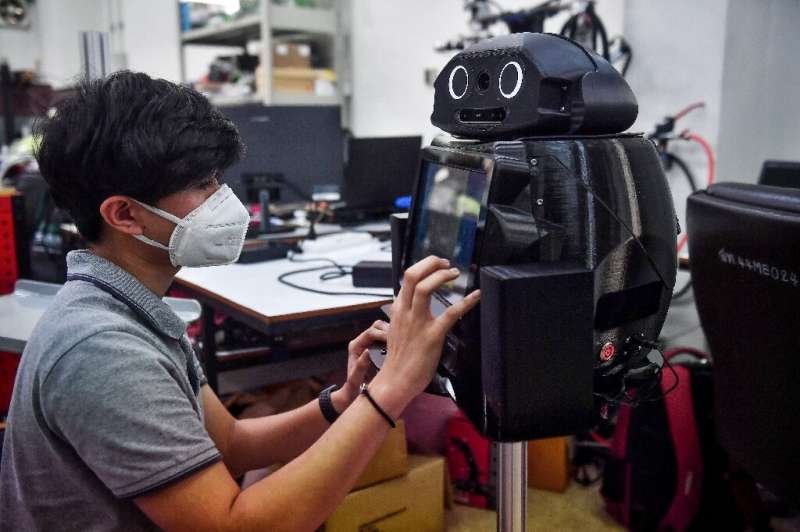Crisis brings robots to medical frontline: researchers

Robots are expected to demonstrate their value for "dirty and dangerous" medical tasks in the fight to quell the coronavirus pandemic, researchers said Wednesday.
An editorial in Science Robotics noted that robots can help with telemedicine, decontamination, handling of hazardous waste and monitoring compliance with voluntary quarantines.
"Historically, robots have been developed to take on dull, dirty and dangerous jobs," the researchers wrote.
"As epidemics escalate, the potential roles of robotics are becoming increasingly clear."
Some robots are already in use during the pandemic. Thai hospitals have deployed "ninja robots" to measure fevers and protect the health of overburdened medical workers, and robots in Denmark are using ultraviolet light to disinfect frequently touched surfaces.
While robots have been used for years in disaster situations and some medical applications, the pandemic has highlighted the need to expand their role, according to the scientists.
"Why are we are still letting the frontline (health care) practitioners be exposed to the pathogen?" journal editor Guang-Zhong Yang, dean of the Institute of Medical Robotics at Shanghai Jiao Tong University, told reporters on a conference call.
"Robots are here for taking some of those risks away from our people."
Robots should also be used for infection control, dealing with patients in intensive care and delivering medication and food, according to the editorial co-authored by researchers including Howie Choset of Carnegie Mellon University and Marcia McNutt, president of the National Academy of Science.
"COVID-19 may become the tipping point of how future organizations operate," the authors wrote.
"New generations of large, small, micro-, and swarm robots that are able to continuously work and clean (i.e., not only removing dust but also truly sanitizing/sterilizing all surfaces) could be developed."
In terms of telepresence, the researcher wrote it was "a challenging area of development because social interactions require building and maintaining complex models of people, including their knowledge, beliefs, emotions."
More information: B. Nelson at ETH Zurich in Zurich, Switzerland el al., "Combating COVID-19—The role of robotics in managing public health and infectious diseases," Science Robotics (2020). robotics.sciencemag.org/lookup … /scirobotics.abb5589
© 2020 AFP



















